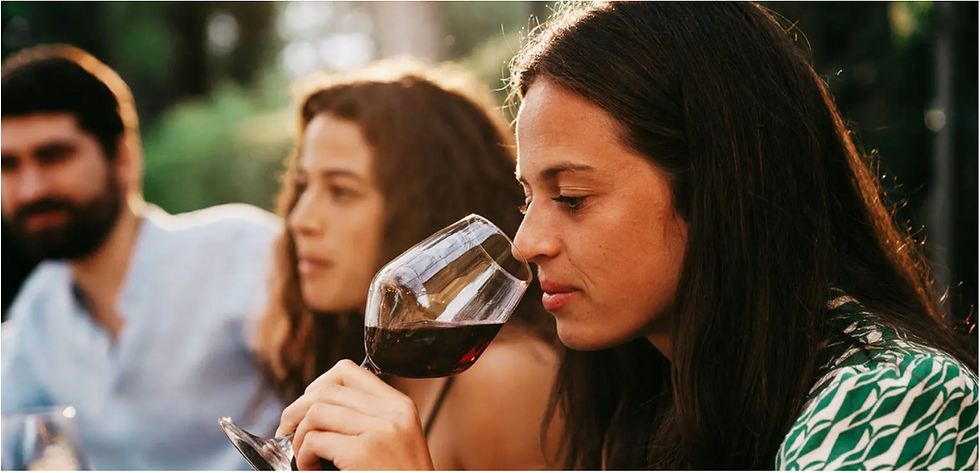Rocky Hill Couple Find Adventure as Vintners
- lance724
- Dec 2, 2020
- 4 min read
Updated: Dec 3, 2020
By Lea Florentine - December 2020

Mark Pausch and Beverly Tepper of Montgomery Avenue in Rocky Hill are not alone in their love for wine. Five years ago, they took this passion a step further and purchased land to grow their own grapes. Last year they reaped the fruits of their labor and made their first wine, with award-winning results. It's not surprising given they both have extensive knowledge in scientific areas that are crucial to producing quality wine.
Mark Pausch
Growing up near the University of Illinois in Urbana-Champaign, with cornfields across the street, Pausch did “any agricultural work” on local farms such as baling hay and shelling beans. Inspired by a molecular biology professor, he pursued a PhD in biochemistry, molecular biology, and cell biology from Northwestern University. He recalls, “I wanted to unlock the secrets of the eukaryotic cell.” Running a fermentation facility and purifying large
amounts of the yeast that is most often used to make wine, Pausch notes, “I became
enamored of the awesome power of yeast genetics.” Yeast shares many of our genes, and is useful in drug testing. This became the focus of his postdoctoral work at the University of California in Berkeley. Pausch spent the first five years of his career researching insecticides and fungicides at American Cyanamid, which was across from Quakerbridge Mall in Lawrenceville.
When the firm was purchased by American Home Products, he moved a short distance up Route 1 to Wyeth Research Neuroscience. Ten years ago, he began testing neuroscience and infectious disease therapeutics for Merck.
Bev Tepper
Tepper grew up in Boston. She studied the eating behavior of rats while earning her PhD in nutrition from Tufts University. Then, she recalls, “I attended a lecture on "Nutrition in the Brain" and I was hooked."
She switched to human taste for her postdoctoral work at the Monell Chemical Senses Center in Philadelphia. She explains, "Humans are more interesting . I tried to understand why people taste what they did. For more than three decades, Tepper has been teaching and researching for Rutgers University's Food Science Department. She co-founded their Center for Sensory Sciences and Innovation and leads it and their Sensory Evaluation Laboratory. Her work studies the effect of flavors and fragrances on humans.
The Couple
The couple have long been fans of Pinot Nor wine. When the large property at 25 Washington Street in town was up for sale, Tepper asked Pausch, "Wouldn't it be fun to have a vineyard?" He looked at her and said, "Let's see if we can do it." The couple began looking for farmland with in an hour of their home, including Princeton Nurseries in Kingston.
When the pair found a 78 - acre soybean farm outside Allentown, they agreed, "This was the one." Pausch explains, "its sandy loam soil drains well. Grapevines are reputed to hate wet feet. And it had a few irrigation ponds. Pausch, who retired from pharmaceutical research, says, “I remembered my love for agriculture and working outdoors.” Recalling that his maternal grandfather from Tuscany showed him how to prune the grapevines that grew at his family’s house, he states, "I'm now the chief viticulturist." The couple is grateful for all the help and expertise they've received from members of the New Jersey Winegrowers Association, Rutgers University's New Jersey Center of Wine Research and Education, and neighbors. The son of a local farmer who leases most of their acreage brought his own equipment and helped plant the first 3,200 vines. Another neighbor is developing the website.
Pausch still works with yeast and fermentation, but now it's to convert the sugar from his 19 varieties of grapes into alcohol. Tepper, who continues her work at Rutgers to bring in an income, adds, "I've sone pruning and harvesting. I've been out there when it's been 95 and humid."
Pausch and Tepper's venture is named "Avventura," which is "adventure" in Italian. Three years ago they received a trademark for Crosswicks Creek Estate Winery. Pausch explains, "This creek passes near the property, and our ponds drain into it. You get a sense of the terroir, or place. Three of their first wines from 2018 won medals in WineMaker magazine's international wine competition. Their Riesling took a gold; their Cabernet Sauvignon and Chambourcin won silver; and their Gruvyr (a 50/50 blend of Grüner Veltliner and Riesling) won bronze. Last year, their Riesling won "Best of Show" among white wines. Next year, Pausch plans to plant another 200 vines on two additional acres. He explains that eight acres can produce 25 to 35 tons of grapes and notes, "We want a small, family run business."

Once the couple gets New Jersey DEP and municipal approval, they will construct a building by the vineyard in the spring. After they get the green light from the federal and state governments, they can begin selling their wine. Eventually they plan to have a tasting room.
In December and January the couple assess their wines to decide when they're ready. The month of February is spent pruning the plants to prepare them for the spring. During the growing season, they remove three-quarters of the shoots to improve the quality of the remaining grapes and allow the plants to direct their energy into their roots. During September and October, they harvest the grapes they grow. Tepper says the vineyard has been "a challenge every day, but rewarding. Each season you get to see the results of your hard work." She points out, "We have me to thank." Pausch replies, "We do."





Comments